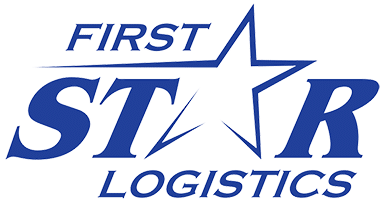When shipping freight, the parties typically work hard to avoid loss, damage, or theft of the goods. But these are not the only things to avoid. Shippers, carriers, and brokers must be on the lookout for fraudulent activities. Fraud schemes are rising, and the scams are becoming more complex, creative, and difficult to detect. Double brokering is one of the most damaging and challenging fraud schemes in the freight market today. So, what is double brokering, and how can logistics professionals and shippers steer clear? This guide defines double brokering, explains how it works, details the risks, and provides tips to avoid it.
What is double brokering?
Double brokering is an illegal practice that has the potential to cause harm to carriers, shippers, and other industry stakeholders. It is an unsafe practice that leaves shippers and carriers with many unanticipated issues. Double brokering is defined as a fraud in which a page poses as a broker or third-party logistics provider (3PL) to exploit money. Essentially, a carrier will accept a load, book another carrier for the job, and then pocket the money or steal the goods.
The Federal Motor Carrier Association (FMCSA) labels double brokering as illegal. However, identifying double brokering can be complicated because it is easily conflated with the legitimate practice of co-brokering. In co-brokering, shipment is also passed onto another carrier, but the significant difference is that it is done with the shipper’s knowledge and consent.
In double brokering, the shipment is passed on secretly to exploit money.
How does double brokering work?
Knowing how the scam works is the first step in guarding against it. In double brokering, a malicious party applies for a motor carrier number and uses the motor carrier number to book a load with a reputable 3PL. The fraudsters then use the documents provided by the 3PL to pretend to be a fake 3PL. As a fake 3PL, the fraudsters hire a carrier to haul the load. Finally, the fraudsters either steal the shipment or disappear with the payment.
What are the risks of double brokering?
Double brokering poses risks to shoppers, carriers, and other industry stakeholders. In severe fraud cases, it is difficult to contain the negative impact. Here are just a few of the risks:
Loss of Money, Time, and Resources
If fraudulent activity is executed entirely, everyone involved, except the fraudsters, loose time, money, and resources. Even with quality insurance, the impact can be dire. Shippers and carriers must waste time determining what went wrong and determining who is responsible. Resources better spent on business growth have to be redirected to crisis management.
Stollen Freight
Double brokering has two possible outcomes: stolen freight or stolen money. When the goods disappear, the shipper has to contend with many headaches. They have to figure out what went wrong, file insurance claims, and manage the relationship and needs of the customer.
Customer Dissatisfaction
When freight is stolen, the customer at the receiving end of the shipment is also harmed. The customer may be compassionate towards the shipper or carrier’s plight, or they may judge the party negatively for falling prey to a scam. Either way, the customer also has to deal with a headache and resulting supply chain issues that will likely impact their business and customers.
Soiled Reputation
While anyone can fall victim to a scam, and scams are incredibly difficult to detect, succumbing to a scam may still reflect badly on a carrier or shipper’s business practices. If word gets out, some customers may be sympathetic, and others may take their business elsewhere.
How To Avoid and Prevent Double Brokering
There are a number of ways carriers and shippers can avoid and prevent double brokering. Scammers often target carriers and shippers they identify as vulnerable or lacking in resources to vet partners thoroughly.
The most important best practice to avoid double brokering and all kinds of scams are to verify the identity and credentials of any partners. Here are three key ways to verify identity and credentials:
- Conduct a simple Google search to see if the name of the carrier, broker, or 3PL aligns with legitimate results.
- Check to make sure the information provided (name, phone number, and email address) matches with records on FMCSA’s Safety and Fitness Electronic Records (SAFER) portal.
- Make sure the information bill of lading (BOL) is the same as the information on the rate confirmation document.
If a carrier unknowingly succumbs to a scam, immediately contacting the shipper and receiver is the best course of action. There is a good chance the other parties involved do not yet know a scam is taking place. If the transaction is still in progress, the payments can be rerouted to the legitimate party, and legal actions can be taken to hold the fraudsters accountable.
The best way to avoid scams is to partner with a logistics company who has your back. First Star Logistics is a unique asset-based global brokerage company with over 60 years of experience. We are passionate about taking care of our shipping clients, carriers, agents, and brokers. To work with First Star Logistics, contact us today!



